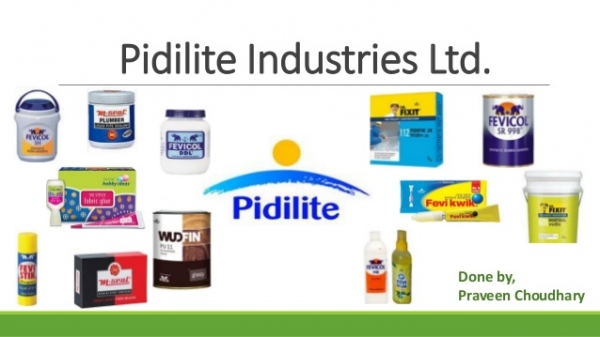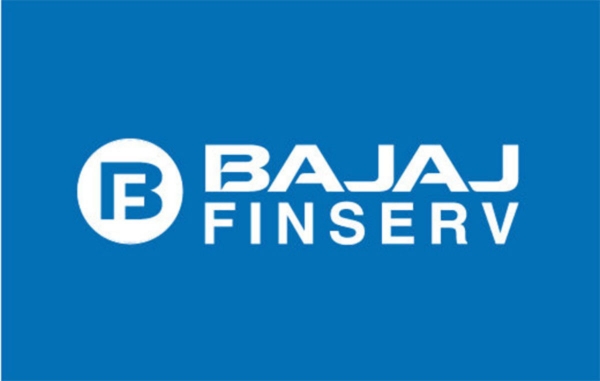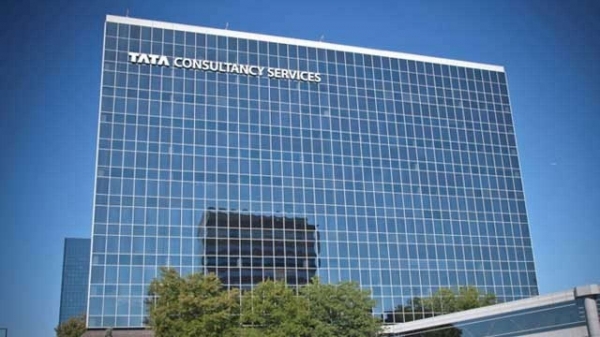Everything About Share Markets: A Beginner’s Guide
Historically, it was likely that shares were traded in a physical market. These days, the share market operates electronically via the Internet and share broker
- by B2B Desk 2020-12-08 09:55:10
When we need food, we go to the supermarket. When you are ready to buy shares or mutual funds, you will usually buy them online through the share market, which anyone can access with a brokerage account, automated advisor, or employee retirement plan.
You do not have to become an official 'investor' to invest in the share market; For the most part, it is open to anyone. After purchasing your first investment, you'll join the ranks of investors around the world who are using the share market to build long-term wealth. But before doing so, it is essential to know what the share market is, how it works, and some introductory investment strategies.
Definition: What is the share market?
The term "share market" often refers to a major share market index, such as the Dow Jones Industrial Average or the S&P 500 Index. Due to the difficulty of tracking every share, these indices include a portion of the share market their actions, and their performance. It is representative of the entire market.

You may see a headline saying that the share market has moved lower or that the share market has closed higher or lower for the day. Most of the time, this means that share indices have gone up or down, which means that the shares within the index have gained or lost their value as a whole. Investors who buy and sell shares hope to profit from this movement in share prices.
How does the share market work?
The concept behind how the share market works is very simple. The share market functions as an auction house, allowing buyers and sellers to negotiate prices and execute transactions.
The share market operates through a network of exchanges. You may have heard of the New York Share Exchange or the Nasdaq. Companies list their shares on the stock exchange through a process called an initial public offering or public offering. Investors buy these shares, which allow the company to raise funds to grow its business. Investors can then buy and sell these shares between themselves, and the exchange tracks supply and demand for each listed share.
This supply and demand help determine the price of each security or the levels at which share market participants, investors, and traders are willing to buy or sell.
The buyers place the "bid" or the highest amount they are willing to pay, which is generally less than the amount the sellers "ask" for in return. This difference is called the spread of supply and demand. For an exchange to take place the buyer must increase his price or the seller must reduce his price.
This may sound complicated, but generally, computer algorithms do most of the pricing calculations. When buying shares, you will see the bid, ask and bid difference on-demand on your broker's site, but in many cases, the difference will be pennies and it will not be of great concern to novice and long-term investors.

Historically, it was likely that shares were traded in a physical market. These days, the share market operates electronically via the Internet and share brokers are online. Each trade takes place on a share-by-share basis, but overall share prices often move together due to news, political events, economic reports, and other factors.
Also Read: How India can crack the vaccine challenge
How to invest in the share market?
If you have a 401 (k) by-place, you may have already invested in the share market. Mutual funds, which often consist of shares from many different companies, are common in 401 (k).
You can purchase individual shares through a brokerage account or an individual retirement account such as an IRA account. Both accounts can be opened in an online broker, with which you can buy and sell investments. The broker acts as a middleman between you and the exchanges.
With any investment, there are risks. But shares have more risk and potential for greater return than some other securities. While market earnings history indicates that the value of a diversified portfolio of shares has increased over time, shares also experience sudden drops.
To build a diversified portfolio without purchasing many individual shares, you can invest in a type of mutual fund called an index fund or an exchange-traded fund. These funds aim to negatively reverse index performance by holding all shares or investments in this index. For example, you can invest in both DJIA andS&P 500, in addition to other market indices, through index and ETFs.
Equities and mutual funds are ideal for a long-term horizon, such as retirement, but they are not suitable for a short-term investment (generally known as money you need for an outlay within five years). With a short-term investment and a strict deadline, there is a greater chance that you will need to recover that money before the market has time to recoup the losses.
Historically, the share market has provided investors with generous returns over time, but the share markets also decline, providing investors with the potential for profit and loss, risk, and come back.
5 benefits of investing in shares
Investing in shares offers several benefits:
- Taking advantage of a growing economy: As the economy grows, so does corporate profits. This is because economic growth creates jobs, generates income, and generates sales. The fatter the salary, the more support increases consumer demand, which generates more revenue in the company's cash records. It helps to understand the phases of the economic cycle: expansion, peak, contraction and depression.
- The best way to stay on the cutting edge of inflation: Historically, shares have produced an average annual return of 10% .1 This is better than the average annual inflation rate. This means that it should have a longer time horizon. This way you can buy and hold even if the value temporarily drops.
- Ease of Purchase: The share market makes it easier to buy a company's shares. You can buy them through a broker, financial planner, or online. Once you create an account, you can buy shares in minutes. Some online brokers like Robinhood allow you to buy and sell stocks without commissions.
- Make money in two ways: Most investors intend to buy at a low price and then sell at a high price. They are investing in fast-growing companies that are valued. This is attractive to both intraday and buy and hold investors. The first group hopes to benefit from short-term trends, while the second group expects the company's earnings and share price to grow over time. They both believe that their share picking skills allow them to outperform the market. Other investors prefer a regular flow of cash. They buy shares of companies that pay dividends. These companies are growing at a moderate rate of 2
- Ease of selling: The share market allows you to sell your shares at any time. Economists use the term "liquid" to indicate that you can convert your shares into cash quickly and with low transaction costs. This is important if you suddenly need your money in a hurry. Since the prices are so volatile, you run the risk of forcing you to lose.
5 disadvantages of investing in shares
These are the disadvantages of owning shares:
- Risk - you may lose all of your investment. If the company performs poorly, the investors will sell, causing the share price to drop. When you sell, you lose your initial investment. If you cannot afford to lose your initial investment, you should buy the bonds.
You get exemption from income tax if you lose money due to a loss of shares. You also have to pay capital gains taxes if you are making a profit.
- Recent shareholder payments: Preferred shareholders and bondholders / creditors get paid first in the event the company goes bankrupt. 5 But this only happens if the company goes bankrupt. A well diversified wallet should keep you safe in case any company collapses.
- Time: If you are buying shares on your own, you should research each company to determine how profitable it is before you buy your shares. You should learn to read financial statements and annual reports and follow the development of your company's news. You should also monitor the share market, so that the company's best price will drop in a market correction, market crash, or bear market.
- The emotional rollercoaster: Share prices are rising again and again. People tend to buy high out of greed, and sell low out of fear. The best thing you can do is not to constantly look at share price fluctuations, just be sure to check back regularly.
- Professionalism: Institutional investors and professional traders have more time and knowledge to invest. They also have advanced business tools, financial models, and computer systems at their disposal. Find out how to gain an advantage as an individual investor.
If you are a beginner we have created a list of shares good for long-term investments by beginners.

1. Kotak Mahindra Bank
Kotak Mahindra bank has earned its position in the top banks in India, though being much younger than many other banks. Kotak Mahindra has delivered phenomenal growth, starting from its inception in 2003.This bank is the third largest bank in terms of market capitalization after HDFC and ICICI.If we consider bank performance parameters such as capital adequacy ratio, non-performing asset, etc. Kotak Mahindra Bank is way ahead of the minimum benchmark required.
Key Details
|
Current Market Price |
1386 |
Market CAP (Rs. Crores) |
264555 |
|
P/E |
38.03 |
EPS (Trailing 12 Months) |
36.44 |
|
Industry P/E |
37.96 |
10-year CAGR of PAT |
28% |

2. Asian Paint
Asian Paints Limited is India’s largest and Asia’s fourth-largest paint manufacturing, along with selling and distribution. The company has also ventured into the home décor segment with its new product portfolio in bathroom fittings.
The company has its business spreading across the globe, now it operates in more than 65 countries. It has 26 manufacturing units around the world. What makes this company attractive is the brand value and brand equity it carries.
Read More: Amazon India brings the Watch Party to Prime Video - here's how to use it
Asian paint had been debt free and its entire operation has been funded by equity.
|
Current Market Price |
1456 |
Market CAP (Rs. Crores) |
139735 |
|
P/E |
64.46 |
EPS (Trailing 12 Months) |
22.60 |
|
Industry P/E |
62.86 |
10-year CAGR of PAT |
21.92% |
3. Bajaj Finserv
Bajaj Finserv Ltd has provided brilliant returns in recent years.
ln 2010 the shares were traded at Rs. 350. Today, the value of the share is Rs. 7500. Just imagine the returns a share investor in 2010 would have fetched by now.
Bajaj Finserv has recently been an integral part of almost all brick and mortar shops, e-commerce, etc. The sole power it derives its business is through its reach to the customer.
The business model seems sustainable and is poised to make larger business given India’s growing economy and disposable income.The capital adequacy ratio and other parameters linked to NBFC (Non-Banking Financial Companies) are above the benchmark.
|
Current Market Price |
7620 |
Market CAP (Rs. Crores) |
121261 |
|
P/E |
39.55 |
EPS (Trailing 12 Months) |
192.65 |
|
Industry P/E |
39.64 |
5-year CAGR of PAT |
11.72% |

4. Pidilite Industries
Pidilite Industries Limited is the manufacturer of the famous product ‘Fevicol’. They are the market leaders in the adhesive segment.
The brand value and brand equity associated with Fevicol is very high and hence, there are only a few substitutes in the market.
|
Current Market Price |
1296 |
Market CAP (Rs. Crores) |
65630 |
|
P/E |
70.29 |
EPS (Trailing 12 Months) |
18.38 |
|
Industry P/E |
46.26 |
10-year CAGR of PAT |
24.10% |
5. Tata Consultancy Services
Tata Consultancy Services Limited is the largest IT sector company in India. It had recently crossed $ 100 billion market value. Also, in recent years it has consistently delivered double-digit growth. It is the largest contributor to the Tata Son Group of business.A long term investor might question investing in the TCS share, as some may say that the company has reached its saturation stage.But the company has delivered double-digit growth since 2014 and continues to have strong fundamentals.
The world is moving towards digitalization, advanced computing, technology-oriented strategies, etc. This has fueled the demand for information technology services.Also, this demand is in recursive nature, hence it is bound to re-occur with the more sophisticated requirement.
|
Current Market Price |
2131 |
Market CAP (Rs. Crores) |
800177 |
|
P/E |
25.43 |
EPS (Trailing 12 Months) |
83.87 |
|
Industry P/E |
23.68 |
10-year CAGR of PAT |
22.27% |
Also Read: How India can crack the vaccine challenge
POPULAR POSTS
Best Silver Investment Platforms for 2025: From CFDs to Digital Vaults Explained
by Shan, 2025-10-23 12:22:46
Best Investment Plans in India for 2025: A Complete Guide to Grow and Protect Your Wealth
by Shan, 2025-09-18 10:20:46
Which venture capital firms are the most active in funding Indian startups in 2025
by Shan, 2025-08-06 10:42:11
Top 5 Apps to Buy Digital Gold in India (2025): Safe, Simple & Secure
by Shan, 2025-08-01 10:24:51
10 Highest Dividend Yield Stocks in August 2025
by Shan, 2025-07-28 09:31:02
Exchange-Traded Fund (ETF): A Practical Guide to Smart Investing
by Anmol Chitransh, 2025-04-17 10:18:20
The Ultimate Guide to Commodity Trading: Strategies, Risks, and Opportunities
by Anmol Chitransh, 2025-04-02 07:06:01
RECENTLY PUBLISHED

Loan EMIs to Drop as RBI Slashes Repo Rate - Full MPC December 2025 Highlights
- by Shan, 2025-12-05 11:49:44

The Agentic Revolution: Why Salesforce Is Betting Its Future on AI Agents
- by Shan, 2025-11-05 10:29:23

Pine Labs IPO 2025: Listing Date, Grey Market Premium, and Expert Outlook
- by Shan, 2025-11-05 09:57:07

Top 10 Insurance Companies in India 2026: Life, Health, and General Insurance Leaders Explained
- by Shan, 2025-10-30 10:06:42

OpenAI Offers ChatGPT Go Free in India: What’s Behind This Big AI Giveaway?
- by Shan, 2025-10-28 12:19:11







 Subscribe now
Subscribe now 